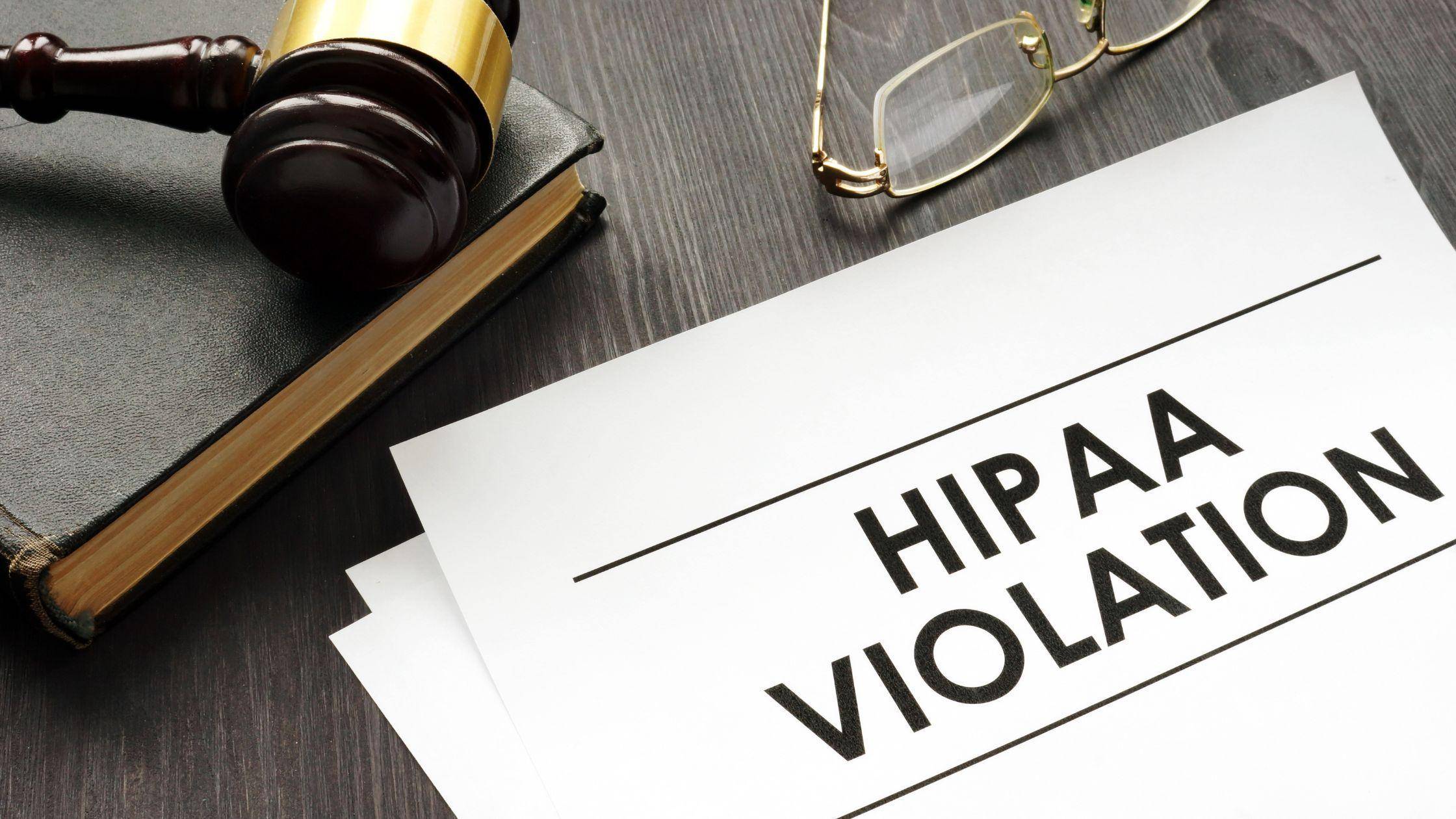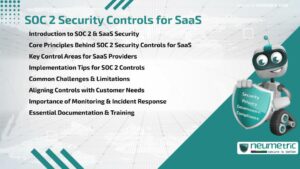Table of Contents
ToggleIntroduction
Health Insurance Portability and Accountability Act [HIPAA] is a set of rules and regulations that govern how medical information is handled by healthcare providers. In short, you must follow the HIPAA rules if you are a healthcare provider or have access to patient records. The objective of these rules is to protect the privacy and security of any patient information that’s stored in an electronic database or sent via email. If you break these rules, it can lead to hefty fines and even criminal charges!
Who Is Affected by HIPAA and What Is It?
HIPAA applies to individuals who are involved in a healthcare transaction. This includes:
- Healthcare providers (doctors, hospitals, clinics) that use electronic health records and Personal Health Information [PHI].
- Patients who receive healthcare from a healthcare provider.
- Family members of patients that include spouses, parents and children.
What is a PHI Violation?
A HIPAA violation is a breach of the Health Insurance Portability and Accountability Act [HIPAA] regulations. These regulations were set in place to protect patient information, including medical records, from being shared without authorization. A HIPAA violation can occur in any area of healthcare where there is access to patient information such as:
- A healthcare provider or hospital.
- An insurance company who works with the provider or hospital to provide insurance for patients of that facility.
- A medical billing company who handles payments for the services at that facility.
So what are some common HIPAA violations? Let’s take a look at some examples.
Examples of HIPAA Violations
- Violations of HIPAA law by healthcare providers: What happens when a doctor or another healthcare provider discloses your medical information without proper authorization? The Office for Civil Rights [OCR] will investigate the matter and take action against the offender. It’s possible that they may be fined or even lose their licence to practise medicine.
- Violations of HIPAA law by patients: Patients are forbidden from disclosing their own medical information without explicit consent from their physician or another health care provider who has authority over them. If you violate this rule by sharing your health records online, on social media, or elsewhere—even if what you say is true—you could face federal penalties.
Common HIPAA violations by nurses and healthcare providers
While HIPAA law is in place to protect patient privacy, there are still many healthcare providers that violate the rules. Some of the most common HIPAA violations include:
- A nurse or other healthcare provider sharing a patient’s health information with family members or friends.
- A healthcare provider having a conversation about a patient with another employee in the facility, where this person receives treatment, without first obtaining consent from said person.
- Physicians posting pictures of their patients on social media without obtaining consent from said people. It should be noted that even if they remove identifying information from images, they may still be guilty of violating HIPAA laws since it is possible for someone to figure out who was photographed by matching facial features or clothing style to what’s known about that person based on other photos from social media or other sources.
Additional HIPAA Law Violations
While you may think that HIPAA violations only happen when someone is trying to access your personal medical records, this isn’t always the case. HIPAA violations can happen in many ways, whether intentional or unintentional. If a hacker breaks into your computer system and steals patient information, that would be considered an intentional violation under HIPAA laws. However, if you accidentally leave a patient chart on top of a photocopier for anyone to see it as they walk by, then that would be considered an unintentional violation under HIPAA laws (and therefore not as serious).
However, unlike other forms of ethical misconduct like plagiarism or lying about credentials on resumes or job applications (which are usually considered unethical but not necessarily illegal), there are serious consequences for violating HIPAA regulations: fines up to $50K per incident; jail time up to 10 years per incident; increased scrutiny from regulators whenever possible.
How are HIPAA Infractions Found Out?
HIPAA violations are found by the Department of Health and Human Services [HHS]. HHS can issue a civil fine of up to $100,000 per violation. HHS can also impose criminal penalties of up to $250,000 per violation and/or up to 10 years in prison.
How do HIPAA violations come to light? Fortunately, they’re easy to discover—the person who has been affected will tell you or another medical provider about it. They may not even know that they have been violated until after the fact when they get their explanation from your practice with your apology letter!
What are the Consequences of HIPAA Rule Violations?
Violations of the HIPAA Privacy Rule can result in civil penalties and criminal penalties. Civil penalties for violations of the HIPAA Privacy Rule are based on a tiered approach, with each tier escalating in severity.
The first tier of civil penalties ranges from $100 to $50,000 per violation. For example, if an individual receives a Notice of Privacy Practice [NPP] but does not comply with it by disclosing Protected Health Information [PHI], that would be considered a single violation. If you were to receive multiple NPPs without complying with them, that would be considered several violations under this first tier and could result in fines up to $50,000 total!
The second tier includes fines up to $1.5 million per violation…but it’s rare for any Organisation to reach this level because most health care facilities don’t knowingly violate HIPAA laws or regulations—they just make honest mistakes or errors like everyone else does.
Categories of HIPAA Infractions and Penalties
- Civil fines: The maximum civil fine for a HIPAA violation is $50,000 per violation.
- Criminal penalties: The maximum criminal penalty for knowingly violating the HIPAA Rules is a $250,000 fine and imprisonment of up to 10 years, plus attorney’s fees.
- Penalties under the HITECH Act: In 2009, Congress passed the Health Information Technology for Economic and Clinical Health [HITECH] Act to provide additional penalties for violations of covered entities’ rights or privacy with respect to Protected Health Information [PHI]. These civil monetary penalties went into effect on September 23, 2009. Since then, OCR has issued guidance clarifying how these new rules apply – including giving us some examples of how they may be applied in practice!
- Recognized Security Practices Safe Harbor: If you are subject to this safe harbour provision (which means you have implemented security policies and procedures that meet certain criteria), then there are no fines related to it at all!
How Does Neumetric Help You To Avoid HIPAA Violation?
Neumetric is a cybersecurity service provider and we can help you achieve HIPAA Compliance. Our team of experts can train your employees on best HIPAA practices. We conduct Risk Assessments of your systems and help you mitigate Risks before it is identified by regulators. We also have a suite of Information Security services like EU GDPR Compliance, PCI DSS, ISO 27001 Certification consulting and outsourcing services that will help you to create an effective information security program for your Organisation.
How to avoid common HIPAA violations.
The most important way to avoid a HIPAA violation is to know the law. Understanding what you can and cannot do will help keep your data secure and confidential.
First, understand the importance of HIPAA: HIPAA was enacted by Congress in 1996 as a way to protect patient privacy while allowing them access to their own medical records when they need it. The purpose was also intended to prevent discrimination against those with pre-existing conditions or disabilities, allow patients better access to treatment options, increase efficiency in healthcare administration, make health plans more competitive by reducing administrative costs and provide incentives for wellness programs that improve overall health outcomes such as primary prevention measures for chronic conditions (the Centers for Disease Control).
As part of this act, there are rules companies must follow when dealing with Protected Health Information [PHI]: They must receive written consent from a patient before using PHI for any purpose other than treatment; this gives people control over their personal information so they can decide who has access if needed later on down the road (or whether they want certain things shared at all). Patients should never sign anything without understanding its contents first since signing an agreement often means giving permission up front before they learn much about what might happen next!
Healthcare providers, insurance companies, employers and other entities are not the only ones with a duty to comply with HIPAA’s privacy and security rules. Covered entities also have legal obligations to protect protected health information.
Covered entities include healthcare providers who transmit any protected health information in electronic form; health plans (including any entity that bills individuals directly for health care services); healthcare clearinghouses; and businesses that perform certain functions on behalf of covered entities.
Covered entities must develop policies and procedures to ensure that they protect their patients’ PHI, even if they don’t know their patient’s name or other identifying information but just have access to the patient’s medical record via ICD-10 codes.
In addition to protecting PHI from unauthorised access or disclosure, covered entities must also take reasonable steps to use appropriate administrative, physical and technical safeguards against loss of confidentiality when using email transmission systems or remote computing devices such as laptops or tablets in order to protect against improper access by unauthorised persons.
Conclusion
As you can see, HIPAA violations can have serious consequences for both your business and your patients. To avoid them, make sure that your staff is educated about the rules and knows how to follow them. You should also check their computer systems regularly for any signs of improper use or access to PHI data. If you suspect someone has violated HIPAA regulations, contact an attorney right away so they can review your case and help you decide what to do.
FAQs
What are the 10 most common HIPAA violations?
The most common HIPAA violations are:
- Failure to protect PHI in storage & in transmission.
- Lack of proper authorization for use or disclosure of PHI.
- Using a patient’s information for personal gain, including identity theft or insurance fraud.
- Improperly sharing PHI with other people, such as friends or family members.
- Leaving PHI lying around where others could see it.
- Giving out patient information over the phone without verifying their identity first (this includes medical assistants).
- Using PHI outside of its intended purpose.
- Not maintaining physical, technical and administrative safeguards for PHI.
- Failing to notify patients when their privacy has been breached.
- Theft or loss of electronic devices containing PHI data (such as laptops).
How can you know whether a company is breaking HIPAA rules?
The best way to find out is to check their compliance with HIPAA rules. You can do this by requesting a copy of their policies and procedures from them, or by reviewing their website for information on privacy protections.
What distinguishes a risk analysis from a risk assessment?
A risk analysis includes the identification of risks and the probability that they will occur. A risk assessment is a process by which an entity determines whether its security measures are adequate to mitigate identified risks.
Who is able to break HIPAA?
While HIPAA violations are relatively rare, there have been some high-profile cases in which the security of protected health information has been breached. In 2015, for instance, a group of Chinese hackers stole over 4 million records from Anthem Inc.(now Elevance Health), one of America’s largest health insurers.
What happens after possible risks and vulnerabilities are found?
After the risk assessment has been conducted and the security of PHI has been determined to be inadequate, the entity must take steps to mitigate identified risks. These steps may include additional training for staff or changing procedures to improve data security.
What does it mean for risks to be “critical”?
Health care entities should consider the significance of identified risks and vulnerabilities in determining whether they are “critical.” For example, if a data breach occurs as a result of an unsecured wireless router in the office, this may be less significant than if it were caused by a malicious hacker who gained access to protected health information through a cyber attack.
What does HIPAA law entail?
HIPAA law protects the privacy and security of health information, as well as ensuring that individuals have access to their own medical records. HIPAA also establishes national standards for electronic transactions and security requirements for protecting electronic Protected Health Information (ePHI).
HIPAA compliance is required by all Organisations that handle health data, including hospitals and clinics; physicians’ offices; pharmacies; insurance companies; labs; and billing services.
What is a HIPAA infraction?
A HIPAA infraction is a violation of the Health Insurance Portability and Accountability Act [HIPAA] Privacy Rules. It may also be referred to as an impermissible disclosure or breach of PHI. A HIPAA infraction can occur when someone accesses, uses or discloses health information without authorization or in violation of established security standards.
Can someone who isn’t a doctor breach HIPAA?
Yes, anyone can breach HIPAA by:
- Looking at or copying another person’s medical records without a reason to do so.
- Stealing medical records and selling them online or in person.
- Sharing PHI with someone who isn’t allowed to have it.
What are HIPAA violations?
A HIPAA violation occurs when someone accesses, uses or discloses health information without authorization or in violation of established security standards. A HIPAA infraction can occur when someone:
- Accesses, uses or disclose Protected Health Information [PHI] without authorization.
- Uses or discloses PHI for reasons other than those permitted by law.
- Uses a patient’s name and/or date of birth to obtain medical services without their consent.
- Discloses another person’s PHI without their written authorization.





